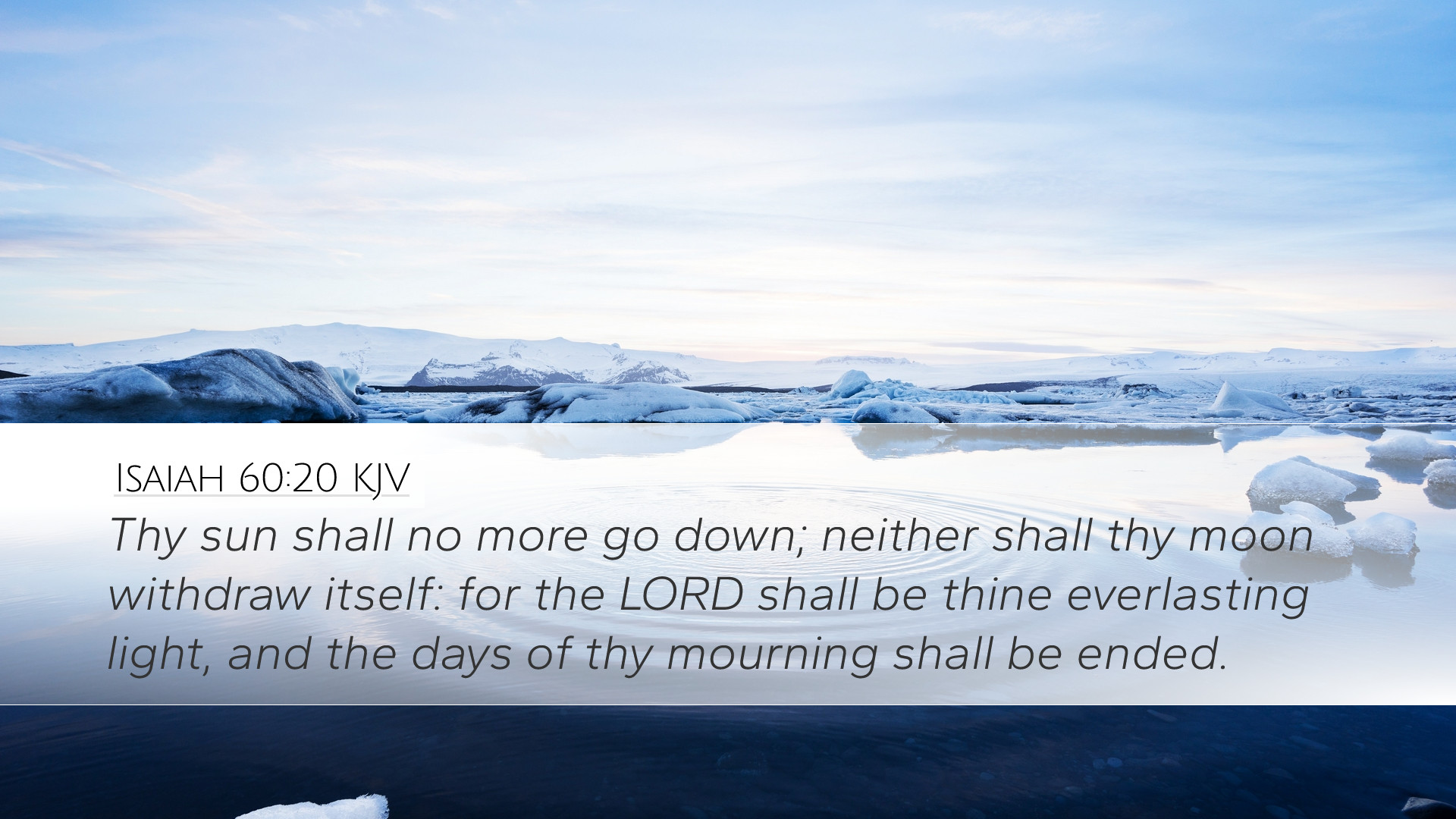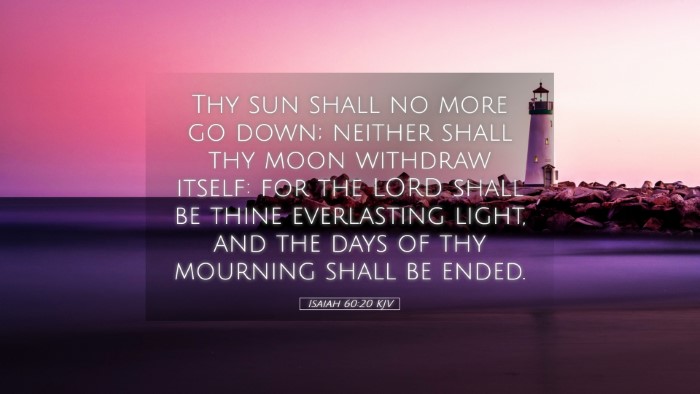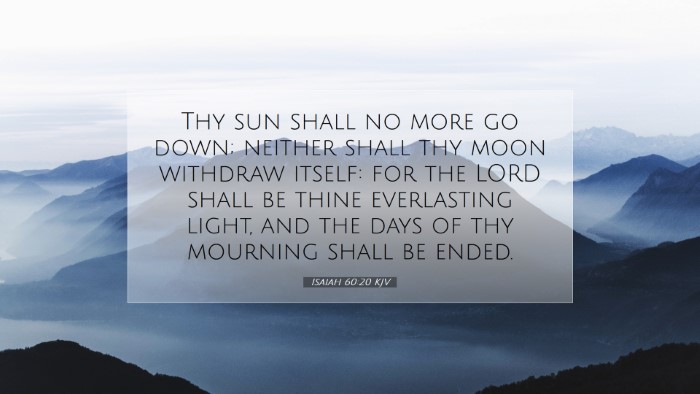Isaiah 60:20 Commentary
Verse Text: "Your sun shall no longer go down, nor your moon withdraw itself; for the Lord will be your everlasting light, and the days of your mourning shall be ended." - Isaiah 60:20
Introduction
This verse from the Book of Isaiah encapsulates profound themes of hope, divine presence, and the promise of restoration. It is a part of a larger section that speaks of the glory of Zion and the blessings that come with God's favor. In this commentary, we will explore insights from various public domain commentaries, including those by Matthew Henry, Albert Barnes, and Adam Clarke, to provide a comprehensive understanding of this scripture.
Thematic Analysis
The essence of Isaiah 60:20 lies in its depiction of eternal light and the cessation of mourning. The imagery of the sun and moon serves as a metaphor for God's unending presence and the transformation of life's struggles into joy.
Divine Light
Matthew Henry emphasizes that light is a symbol of God's favor. The reference to the "everlasting light" implies a divine illumination that surpasses all earthly lights. God is portrayed as the source of all good; His presence eliminates darkness and despair.
Adam Clarke adds that this everlasting light signifies not only guidance but also a perpetual state of joy and peace. The idea is that where God reigns, there is no shadow of turning, and thus the faithful are continuously bathed in His glorious light.
End of Mourning
The assurance that "the days of your mourning shall be ended" speaks powerfully to the human condition. Albert Barnes remarks that the end of mourning signifies a complete restoration not only of joy but also of community and relationship with God. Through God’s presence, the struggles of the past are transformed into a new reality marked by joy and fulfillment.
Matthew Henry further notes that this promise reflects God's covenant loyalty; He is committed to turning sorrow into gladness, reinforcing the notion that our temporal sorrows are temporary when compared to eternal joy under His sovereignty.
Historical Context
This verse is situated within a prophetic framework, anticipating a time of great restoration for the people of Israel. Albert Barnes provides a historical backdrop that points to both the immediate context of the Israelites returning from exile and a future eschatological fulfillment. The imagery of light and the ceasing of darkness not only reflects the Israelites' deliverance but foreshadows the coming of the Messiah, who will ultimately fulfill these promises.
Spiritual Implications
For pastors, students, theologians, and Bible scholars, Isaiah 60:20 offers rich material for contemplation and preaching. The spiritual implications suggest that believers can find solace in God’s promise of everlasting light. Adam Clarke articulates that in every darkness—be it personal, communal, or spiritual—there is hope because God's presence is ever near, promising restoration and renewal.
- Hope in Trials: The verse reassures believers that their current struggles are not the end. God invites us to trust in His everlasting light amid life's inevitable challenges.
- Encouragement to Leaders: In pastoral settings, this scripture can be a source of encouragement for leaders who face discouragement, reminding them of the ultimate victory found in God’s promise.
- Call to Worship: The imagery creates a backdrop for doxology, encouraging a response of praise and gratitude for God’s faithful presence.
Application for Today
Isaiah 60:20 can be applied in both personal devotion and corporate worship. Matthew Henry encourages believers to meditate on the transformative power of God’s light in their lives. It is essential to live in the light of His promise, allowing that reality to reorient our perspectives and actions.
Church leaders may find value in discussing how the promises of God provide hope in contemporary society filled with despair and uncertainty. Like the Israelites, today’s believers can trust in the fulfillment of God’s promises while navigating through their individual and collective challenges.
Conclusion
Isaiah 60:20 serves as a powerful reminder of God’s everlasting presence and the eventual end of sorrow. As we reflect on the insights gathered from Matthew Henry, Albert Barnes, and Adam Clarke, it becomes evident that this verse not only speaks to the historical context of Israel but also resonates with contemporary faith experiences. Believers are encouraged to embrace the light of God’s presence, confident that joy will ultimately triumph over mourning.


